Editor's note: This article is just a report about OpenAI's API, how it works, and how anyone could potentially sign up for and use. It does not indicate any affiliation with Speechify.
Text-to-speech (TTS) APIs have become invaluable tools in the world of artificial intelligence (AI) and machine learning. OpenAI, a renowned AI research lab, offers its own TTS API, enabling developers to convert written text into spoken words effortlessly. With OpenAI's API, users can transcribe audio files, perform speech-to-text conversion, and generate human-like speech in English.
Utilizing OpenAI's TTS API
To harness the power of OpenAI's TTS API, developers can explore various aspects of its functionality and integration possibilities. This article will delve into key components, including the Whisper model, Python programming, JSON data format, and integration with GPT-3 and GPT-4 models. By leveraging OpenAI's TTS API, developers can unlock the potential of generative AI and natural language processing to create cutting-edge applications.
OpenAI’s Whisper
OpenAI's Whisper is an advanced automatic speech recognition (ASR) system that is trained on a vast amount of multilingual and multitask supervised data from the web. It utilizes cutting-edge deep learning algorithms to convert spoken language into written text accurately. Whisper is designed to be versatile and can handle various use cases, including transcription services, voice assistants, and voice-controlled applications. Its robust performance and high accuracy make it a valuable tool for developers and businesses in need of reliable speech recognition technology.
Getting Started: Installation and Setup
To begin using OpenAI's TTS API, developers and data science professionals need to install the OpenAI package and obtain an OpenAI API key. The API's documentation offers comprehensive tutorials and examples, providing step-by-step guidance throughout the process. Once the API is set up, users can transcribe audio files by passing them through the Whisper model and receive the resulting text in desired formats, such as WAV or WebM. Additionally, developers can generate lifelike speech by providing text inputs to the API endpoint. The OpenAI API supports various programming languages and file formats, ensuring versatility across different projects and use cases.
Customization and Optimization
OpenAI's TTS API employs advanced algorithms and machine learning capabilities to facilitate high-quality speech synthesis. This functionality makes it a powerful tool for developers in the AI and natural language processing field. OpenAI's commitment to open-source principles further enhances the accessibility and transparency of their TTS technology. Developers can customize and optimize the speech generation process according to their specific requirements, offering greater flexibility and control.
Considerations: Pricing and Documentation
Understanding the pricing structure, content-type requirements, and usage limits associated with the API is crucial. OpenAI provides detailed documentation and resources to assist developers in effectively navigating these considerations. Continuous research and development efforts by OpenAI ensure that the TTS API remains at the forefront of generative AI technology. Advances in models like GPT-3.5-turbo and Whisper further exemplify OpenAI's commitment to driving innovation in the TTS domain.
ChatGPT brings text-to-speech to life
The ChatGPT API, powered by OpenAI's advanced text generation models, can incorporate text-to-speech (TTS) speech recognition technology to provide a more immersive and interactive conversational experience. With the integration of TTS, ChatGPT can convert its generated text into lifelike speech, allowing users to hear responses in a natural and engaging manner. This feature enhances the overall user experience, making interactions with ChatGPT more dynamic and realistic. By leveraging TTS technology, ChatGPT bridges the gap between written transcriptions and spoken communication, bringing conversations to life.
Unlocking Possibilities: Integration and Future Prospects
By leveraging OpenAI's TTS API, developers can unlock new possibilities in content creation, accessibility, voice assistants, and numerous other domains. The integration of text-to-speech capabilities into applications enhances user experience and opens avenues for innovation. OpenAI's TTS API harnesses the power of artificial intelligence and machine learning to transform written text into natural and expressive speech. As OpenAI continues to push the boundaries of AI research, the future holds even more exciting possibilities for text-to-speech technology and its role in enhancing human-machine interaction.
Try Speechify’s AI Tools for Free
Speechify can seamlessly work with OpenAI's APIs, including the OpenAI API for text-to-speech (TTS) and the ChatGPT API for generative conversational AI. With the OpenAI API, Speechify can transcribe audio files, perform speech-to-text conversion, and generate human-like speech in English. By leveraging OpenAI's advanced machine learning and artificial intelligence technologies, Speechify can offer high-quality speech synthesis and recognition capabilities. Developers can integrate Speechify with OpenAI's APIs using Python, JSON, and other supported programming languages. The comprehensive documentation and tutorials provided by OpenAI enable smooth integration and implementation of Speechify with OpenAI's powerful models and tools for tasks such as transcribing, TTS, and chatbot development.





